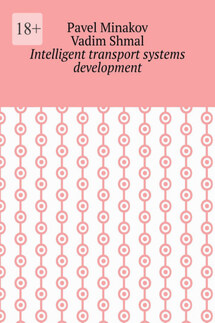Cybernetics is the science of communication and control. He also explores the self-perception of people and social groups. This concerns how human activities and communication affect collective behavior. The social context of cybernetics is vast and growing. Cybernetics is a dynamic and diverse field of research. New trends and scientific discoveries will influence the field of cybernetics in the coming years.
Cybernetics is a portfolio word that combines cybernetic with biology. American mathematician John von Neumann published Automata, an article on cybernetics, in which he outlined the fundamental paradigm of the theory: there are situations that are controlled by a central computer. Von Neumann applied the term «automaton» to any device or system that «can be analyzed like automata».
Cybernetics takes a holistic approach and works with communication at an elementary level. Early cybernetics also explored how language affects the way people interact. Topics of how society and people perceive and interact with information technology are of great interest. A special issue of «Cybernetics» examines the meaning and development of the word «cybernetics». These reviews shed light on this rather little-known branch of science. Despite these theoretical advances and new developments, this area is still poorly understood. Only 10% to 30% of researchers working in this field publish more than three articles a year. A 2006 study found that there is a dead end in attracting the attention of leading journals to new research proposals.
The applied part of cybernetics deals with the control and movement of systems, as well as how to regulate or control their behavior. Along with systems theory, statistics, and operations research, cybernetics is one of the three main disciplines of science and technology and the first scientific discipline to deal with controlling and influencing the behavior of a system. The main goal of the broad field of cybernetics is to understand and define human intelligence. According to cybernetics, the process of understanding how to build and maintain the human brain and its intellectual capacity is complex and multidimensional.
Cybernetics is defined as the study of interactions between people and things, the study of the interaction between people and their environment, the study of systems, the systematization of actions. The importance of understanding these interrelationships is what made cybernetics one of the most widespread sciences in the 20th century. The scientific study of any human phenomenon – action, planning, protection, communication, etc. – was included in the disciplinary study of cybernetics.
Cybernetics has been defined in different ways, by different people, from a wide variety of disciplines. It is a broad concept that encompasses many areas. On one level, it has to do with the nature of all life; transfer and control of information within biological systems and between them. On the other hand, we are talking about the control of processes at the atomic and molecular levels and the network connections between them.
Research automation proves that a key innovation in machine intelligence is achieving or exceeding the ability of humans to control and manipulate data. The fundamental role of a computer (or smart machine) is not to make calculations; but manage the information processed by the machine. The information network is the basis of intelligence. AI’s primary focus is to develop systems that can monitor the network and dynamically change its connections to improve its performance in response to changing circumstances.
The «correlation versus causality» discussion in cybernetics means that we need to interpret the data without succumbing to Cartesian dualism. In terms of neoclassical economics, the main driving forces of business are the subjective preferences of people, driven by incentives. The emergent point of view is an emergent system in which different levels of causal structure appear and disappear over time. Bostrom uses this model to see the nature of intelligence.
Robots and other artificial intelligence systems must evolve following a strategy of making the system as responsive to the environment as possible. They must constantly adapt and improve, following the rules given to them, the strategy adopted for this reason, because a human programmer cannot foresee all future events. The rule-based nature of AI is a key ingredient in its evolution and also, in other words, its goal (although this goal is often overlooked). The ability to learn from experience (learning by doing) is fundamental to intelligent behavior.
The development of AI led by humans will not be associated with the construction of a high-performance «superintelligence»; but about strengthening and expanding the system in relation to those fundamental principles of cybernetics that we expect from people: learning, adaptation and repetition. A certain «learning to learn» (programmability, emergent behavior) is the foundation of cybernetics.












